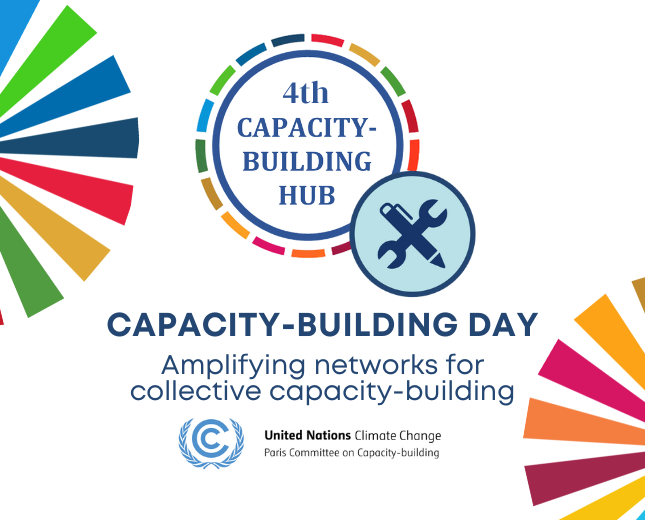Event Recording
Organizers
Background
ICCCAD: The International Centre for Climate Change and Development (ICCCAD) is one of the leading research and capacity building organizations working on climate change and development in Bangladesh. ICCCAD’s aim is to develop a world-class institution that is closely related to local experience, knowledge and research in one of the countries that is most affected by climate change.
GGGI: The Global Green Growth Institute (GGGI) is a treaty-based inter-governmental international development organization headquartered in Seoul, South Korea. The organization promotes green growth, a growth paradigm that is characterized by a balance of economic growth and environmental sustainability.
The session: The importance of capacity building to address climate change cannot be overstated. Globally, about 70% of the developing country NDCs and 83% of the LDC NDCs submitted to the UNFCCC put capacity building as a condition to implement their NDCs. This need for capacity building support overwhelms other kinds of international assistance including for climate finance. Capacity building as a non-politicized agenda under the politically charged UNFCCC process is coming up as a very important issue. The event followed a brief presentation on capacity building, followed with a panel discussion where designated discussants focused on the importance of the long-term capacity building needs for different stakeholders in the LDCs as well as how this can be achieved. This session also intended to officially launch the Training of Trainers (ToT) on “Mainstreaming and Implementing NDCs and NAP Priorities through National Development Planning”
Objectives
- Discuss the capacity needs and gaps in LDCs.
- Exchange ideas on how to mainstream the capacity building & ACE elements in the development strategies of the LDCs
- Engage with LUCCC on the topic of LDC universities.
- Discover ways of expanding collaboration with party and non-party stakeholders like the GGGI to strengthen capacities for climate actions.
Structure & Speakers
|
Time 9.00-10.00
|
Segments & Speakers |
| 10 min |
Welcome Remarks
by Madeleine Diouf Sarr, Chair of the LDC Group, Republic of Senegal
|
| 10 min |
Key Note Presentation
by Prof Saleemul Huq, Director of ICCCAD
|
| 30 min |
Panel Discussion
- Gebru Jember Endalew, Global Lead Climate Diplomacy, GGGI
- Hala Al Hamawi, Accreditation and Compliance Specialist, GGGI
- Prof Mizan R Khan, Deputy Director, ICCCAD and Technical Lead, LUCCC
|
| 5 min |
Q & A Session
|
| 5 min |
Closing Remarks
by Dr Ingvild Solvang, Deputy Director, GGGI
|
Key Outcomes
- Universities need to engage in climate education. Through capacitating universities in developing countries, resources for building capacities of citizens of a country are mobilized. LDC Countries should focus on in-house capacity building to ensure sustainability.
- An increase in awareness about climate finance through e.g., multistakeholder dialogue events is needed. Guidelines by organizations like GGGI for climate finance are making the accessibility of providing funding to local communities.
- Governments need to support and include universities in their adaptation and mitigation activities. Bottom-up planning and moving out of project-based approach is needed. University faculty members should advocate with the government counterparts and a comprehensive training programme is required for the LDC University Faculty Members.




